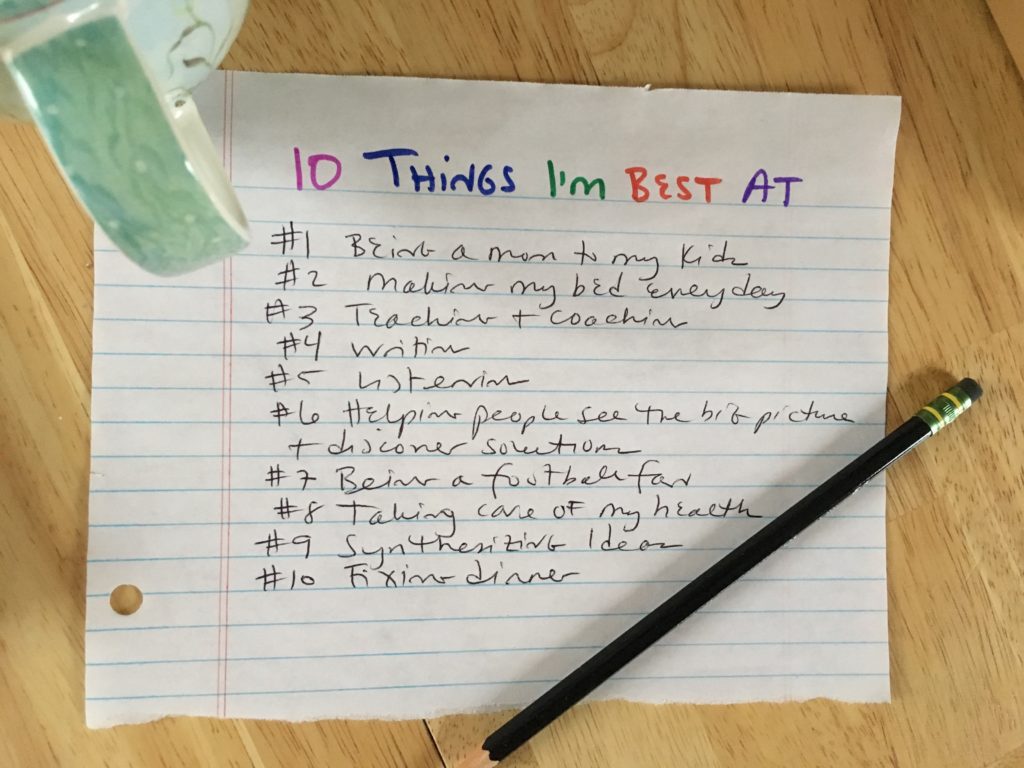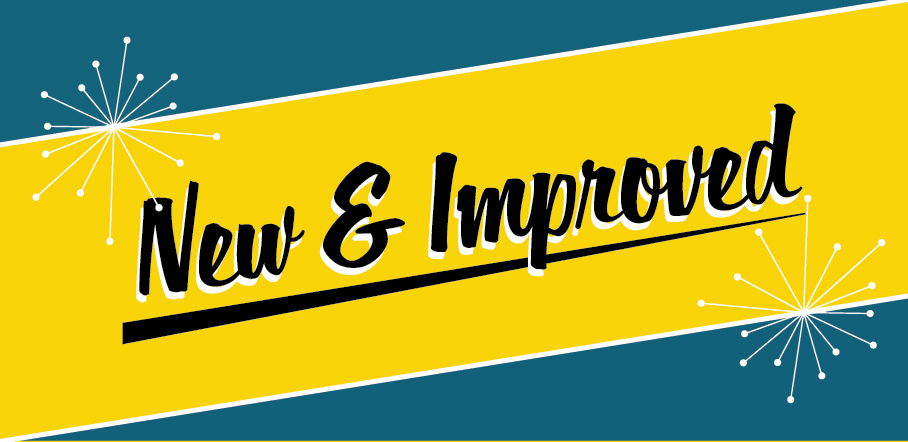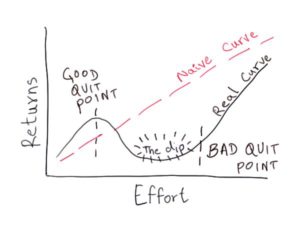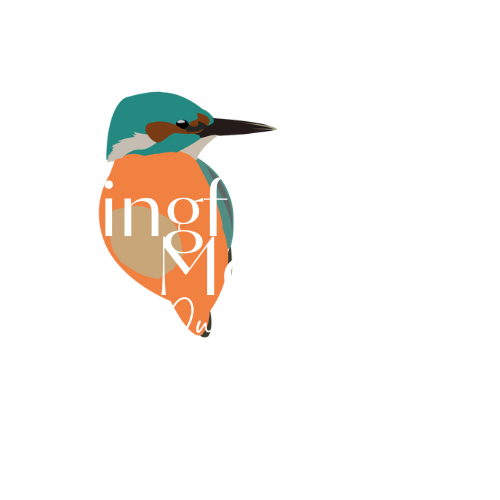
I’ve been reading Seth Godin’s book The Dip this week. If you haven’t read this book, I recommend it.
In a nutshell, The Dip is a book about helping readers figure out when to keep going, when to quit and “having the guts to do one or the other.”
Sounds simple enough, but it really isn’t.
A Short Book with a Long Punch
The Dip is a short book, but it packs a long-lasting punch.
It gets you thinking about what you’re doing, and whether or not what you’re doing is worth it.
It tells you that it’s easy to start things, and not so easy to hang in there until you’ve achieved mastery.
One of the themes of the book is being the best at something.
How do you know if you’re the best?
What does being the best really mean?
Why aren’t more people the best at something?
These are but a handful of the many questions he asks.
Two Lists
I made two lists. The first is a list of 10 things I’m best at:
- Being a Mom to my two kids
- Making my bed everyday
- Teaching and coaching
- Writing
- Listening
- Helping people see the big picture and discover viable solutions
- Being a football fan
- Taking care of my health
- Synthesizing ideas
- Fixing dinner
After looking over this list, I decided to make a second list of things I will never be the best at:
- Being an NFL quarterback
- Working as a factory machinist
- Sewing
- Playing the guitar
- Flying an airplane
- Making coffee
- Bartending
- Growing vegetables
- Programming and SEO
- Sailing
I don’t spend a lot of time thinking about what I’m not good at. Life’s too short for that.
But like just about everyone else in this world of seemingly endless opportunities, I get tempted from time to time to explore something new. Novelty, after all, is one of life’s greatest pleasures. It makes our brains work better.
And the marketplace encourages us to try new things!
The Power of New

That’s what every “new and improved” product line expects. That we see that word “new” and pull out our credit card.
Trillion dollar industries are build on new.
There’s nothing wrong with new. New is wonderful. By its very nature it offers us hope. New year. New season. New chapter. New you!
New, new, and more new fuels our existence, promising nirvana just on the other side of getting started on that new path.
Seth cautions readers about this very thing. He writes:
[su_quote cite=”Seth Godin”]At the beginning, when you first start something, it’s fun. You could be taking up golf or acupuncture or piloting a plane or doing chemistry — doesn’t matter; it’s interesting, and you get plenty of good feedback from the people around you. Over the next few days and weeks, the rapid learning you experience keeps you going. Whatever your new thing is, it’s easy to stay engaged in it. And then the Dip happens. The Dip is the long slog between starting and mastery.[/su_quote]
The dip is where most people abandon what was new and hop to what’s next, looking for their next fix, their next hit.
The new great thing that will make them smarter, happier, richer, thinner.
Sometimes this is the right thing to do.
More often, though, it’s not.
More Questions
Knowing when to stick and when to quit is one of life’s greatest challenges.
Which, I suspect, is one of the reasons Seth wrote this book.
To figure out some things for himself about sticking and quitting.
How do you play your position well when your position isn’t getting you anywhere?
What if you quit one position and go to a different one the way Michael Jordan did when he left basketball to play baseball only to discover that wasn’t the greatest idea? Should have stuck with basketball, right?
Maybe not.
I’m convinced we learn our most powerful lessons when we falter, scratch, muddle, slog. It’s the most critical part of the hero’s journey, when the hero descends into darkness only to emerge on the other side with new eyes, new insights.
Sometimes quitting is the best way to discover we were really good at something and need to go back to it, carrying with us the new wisdom we gained from veering off the obvious path.
What makes life so interesting isn’t that we followed one course of action our entire lives and could say in the end, “Well, at least I stayed the course!”
No, what makes life so interesting are the zigs and the zags we face as we wriggle toward becoming the best at who we are, even when it means not always knowing every answer at every turn and making mistakes.
What We Owe Ourselves
 By tuning in to who we are, what we stand for and why we do what we do, we can survive the dips in life, quit at the right time and become the best in pursuits that matter most to us.
By tuning in to who we are, what we stand for and why we do what we do, we can survive the dips in life, quit at the right time and become the best in pursuits that matter most to us.
To me, that right there is worth showing up to the practice field every day no matter the weather. No matter what other people are saying. No matter who was elected president or why someone unfriended us on Facebook or what’s happening in the rest of the world.
Don’t we owe it to ourselves to do that — at the very least — that one good thing called showing up for ourselves each day?
Don’t we owe it to ourselves to make our lists?
What we’re best at. What we’ll never be best at. See what comes up.
I think you’ll not just feel affirmed by what you write, but surprised as well.
Use these lists to gain one new insight about yourself, your work, your aspirations. Carry that insight with you today, tomorrow, into next week.
Being the best doesn’t necessarily mean winning all the awards or being a household name. Sometimes it’s about knowing when to stick — and when to quit.
An inch really can be a mile. Especially when measuring our dips by the small things we’re best at in our lives.
Want to listen to an audio version of this blog post? Click here.
